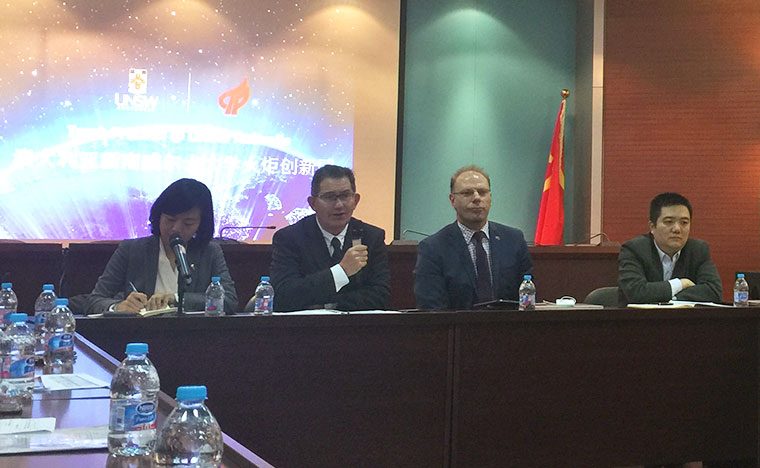
TGI contributes to UNSW Sydney Torch roadshow
The George Institute (GI) for Global Health China has been invited by UNSW Sydney (the University of New South Wales) to participate in a mini-roadshow on 1 November, organized as part of the Torch High Technology Development Centre of the Chinese Ministry of Science and Technology, to discuss innovations in digital health to improve the health of older people.
As an affiliate of UNSW Sydney in Australia, GI China outlined various research projects involving digital clinical intelligence for the management of chronic diseases through the China Center for mHealth Innovation (CCmHI). Those in attendance will include Dr. Maoyi Tian, Head of Trauma and Injury, Ms. Huan Chen, Acting Head of Women and Children’s Health, Mr. Julian Zheng, Consultant, from GI China, and Professor Rebecca Ivers, Director of Injury Division, at GI Australia.
In recent decades, China has undergone rapid economic transformation, which has led to prosperity and improved living circumstances. However, changes in lifestyles, urbanization, and a rapidly aging population has resulted in a large increase in the burden of non-communicable diseases (NCDs), such that they account for 86% of all deaths in China. As in other countries, NCDs present great challenges to the economy, healthcare system, and society of China. Prevention and management of NCDs are vital to improve health and well being, and the economic prosperity of populations.
An initiative of GI China, the digital clinical intelligence system can make important contributions to the management of NCDs through the use of sophisticated evidence-based risk-management algorithms. Constantly updated algorithms provide highly individualized recommendations for patient management at ‘points-of-care’ and at home.
Hosted by GI China and funded by Qualcomm Wireless Reach, CCmHI has been positioned to be a world-class center for mobile health (mHealth) innovation. Working with central and provincial governments, CCmHI is helping to improve community healthcare by developing mHealth solutions, implementing clinical evaluations, and contributing to strategies for the implementation and scale-up of effective and affordable mHealth tools.
CCmHI’s priorities are to:
- Build Chinese capacity in digital health care development and evaluation, including providing opportunities for student internships and fellowships
- Develop and evaluate mHealth platforms designed to provide community health care workers with evidence-based, personalized guidance about the care of individual patients
- Provide solutions that are effective in both urban and rural settings
- Assist with the integration of mHealth strategies into national and provincial policies and guidelines
- Support the development and expanded use of mHealth technologies globally
Since its establishment in 2014, CCmHI has rapidly expanded to include the development of various mobile apps including FoodSwitch, SMART Diet, SMART Diabetes, Maternal & Children’s Health (1000 days), Know Salt & Oil and AppSalt. FoodSwitch is a free app that is now widely available in Australia, New Zealand, United Kingdom, South Africa and India.
“We’re very proud of our successes relevant to the people of China that we have been able to share with others,” said Professor Craig Anderson, Executive Director of GI China. “We look forward to continuing fruitful collaborations with people in China and with UNSW Sydney.”



